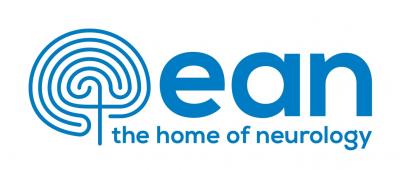
Credit: EAN
(Vienna, Sunday, 24 May, 2020) Stroke survivors suffering from the burden of combined sleep-wake disturbances are more likely to have another stroke or serious cardio- or cerebrovascular event compared to those without sleep-wake disturbances, according to the results of a scientific study presented today at the European Academy of Neurology (EAN) Virtual Congress.
The study, conducted by Professor Claudio Basssetti and his research team in Switzerland, found that having multiple sleep-wake disturbances such as sleep-disordered breathing, extreme long or short sleep duration, insomnia and restless leg syndrome independently and significantly increased the risk of a new cardio-cerebrovascular event (e.g. stroke, transient ischaemic attack, myocardial infarction) in the 2 years following a stroke. This, say the researchers, suggests that assessing and improving sleep patterns in stroke survivors could improve their long-term outcomes.
“We know that people who have had a stroke often experience sleep disorders, and that these are associated with worse stroke recovery outcomes,” said Dr Martijn Dekkers and Dr Simone Duss from the University of Bern in Switzerland, who presented the study today. “What we wanted to learn from this study was whether sleep-wake disturbances in particular are associated with worse outcomes after stroke.”
The study includes 438 individuals aged 21 to 86 years (average age 65 years) who had been hospitalized after an acute ischemic stroke (a type of stroke caused by a blocked blood vessel to the brain) or a transient ischaemic attack (a ‘mini-stroke’ caused by a brief blockage of the blood supply to the brain with transient clinical symptoms up to 24 hours). The presence and severity of the sleep-wake disturbances, such as insomnia, restless leg syndrome and sleep duration, as well as daytime symptoms such as sleepiness, were recorded for each individual at 1, 3, 12, and 24 months after their stroke. Sleep-disordered breathing was assessed within the first days after the ischemic stroke or transient ischemic attack using respirography. The occurrence of new cardio-cerebrovascular events was also recorded during the 2 years of follow-up.
The research team reports that a bit more than one third of the patients reported insomnia symptoms (i.e. ? 8 points on the Insomnia Severity Index questionnaire), about 8 % fulfil the clinical diagnosis of restless legs syndrome, 26% suffer from severe sleep-disordered breathing (Apnoea-Hypopnea-Index > 20 events per hour) and about 15% report extreme sleep durations, with a tendency toward longer sleep durations following the stroke.
“Using the sleep-related information we collected during the first 3 months after the stroke, we calculated a ‘sleep burden index’ for each individual, which reflected the presence and severity of sleep-wake disturbances,” explained Dr Dekkers. “We then assessed whether the sleep burden index could be used to predict who would go on to have another cardio-cerebrovascular event during the 2 years we followed them after their stroke.”
The results suggest that stroke survivors with at least one subsequent cardio/cerebrovascular event have a higher sleep burden index score than patients without a subsequent event 3 months to 2 years post-stroke (Wilcoxon rank-sum test p
Although interventional trials investigating the benefit of treating sleep-wake-disturbances after stroke are needed, Dr. Duss said that sleep-wake disorders, should be more systematically assessed and considered in comprehensive treatment approaches in stroke patients (as recommended also in a recent guideline produced by the EAN in collaboration with 3 other European Societies).
###
Notes to Editors:
Press Enquiries:
For further information or to speak to an expert, please contact Luke Paskins or Sean Deans at [email protected] or call +44 (0) 1444 811099.
About the Experts:
Prof. Dr. med. Claudio Bassetti, Dr. med. Martijn Dekkers, MD PhD Markus Schmidt, MD PhD Corrado Bernasconi and Dr. Phil. Simone Duss work at the University Hospital of Bern (Inselspital) in Switzerland.
EAN – The Home of Neurology:
The European Academy of Neurology (EAN) is Europe’s home of neurology. Founded in 2014, through the merger of two European neurological societies, EAN represents the interests of more than 45,000 individual members and 47 national institutional members from across the continent.
In the interest of the health, safety and well-being of all registered attendees, patients and families, as well as the general public, EAN decided to cancel all in-person attendance and face-to-face activities at the Annual Congress, of May 23-26, 2020 in Paris. The decision was taken due to the COVID-19 Coronavirus pandemic and in full support of public authorities in Europe and the World in their effort to slow the spread of the disease.
Accordingly, the EAN Board decided to organize the 6th EAN Congress as Virtual Congress for May 23-26, 2020 and offer to the neurology community the possibility for education, scientific news and best practice exchange without leaving home.
The EAN Virtual Congress will also cover all neurological diseases and disorders, including the big 7: epilepsy, stroke, headache, multiple sclerosis, dementia, movement disorders, neuromuscular disorders.
References:
1. Simone B. Duss, Corrado Bernasconi, Martijn P. J. Dekkers, Anita Steck, Filip Alexiev, Markus Schmidt, Claudio L. A. Bassetti, Sleep-wake disturbances after acute stroke predict a higher risk of subsequent cardio-cerebrovascular events, EAN Virtual Congress 2020.
2. Duss SB, Seiler A, Schmidt MH, et al. The role of sleep in recovery following ischemic stroke: A review of human and animal data. Neurobiol Sleep Circadian Rhythms 2016;2:94-105.
3. Duss SB, Brill AK, Bargiotas P, et al. Sleep-wake disorders in stroke-increased stroke risk and deteriorated recovery? an evaluation on the necessity for prevention and treatment. Curr Neurol Neurosci Rep 2018;18(10):72.
4. Bassetti CLA, Randerath W, Vignatelli L, et al. EAN/ERS/ESO/ESRS statement on the impact of sleep disorders on risk and outcome of stroke. Eur J Neurol 2020; Apr 20. doi: 10.1111/ene.14201. [Epub ahead of print]
Media Contact
Luke Paskins
[email protected]




